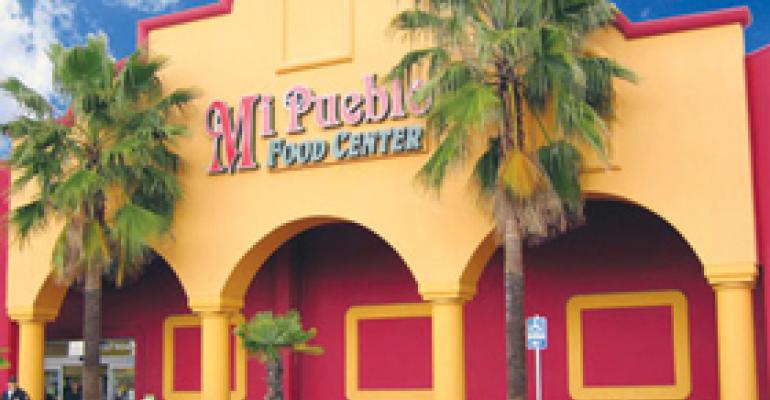SAN JOSE, Calif. — Mi Pueblo Food Centers here is preparing to open its largest store yet, a 50,100-square-foot former Albertsons location in the Bay Area town of Pittsburg, Calif. After receiving use permits from the city's planning commission in late October, Mi Pueblo has begun developing the store into its twelfth supermarket, catering to Hispanic and Latino shoppers with a Mexican-style deli department featuring a taqueria and tortilleria, as well as large full-service bakery and meat departments and a grocery mix tailored to their core shoppers. Company officials have said they hope to have it open by spring this year.

Juvenal Chavez, who founded the chain in 1991 after spending several years operating a butcher shop and meat market with his brother, credits his company's growth to its focus on service departments, as well as a keen understanding of the different demographic sub-segments of the Bay Area's Hispanic population, including the demands of shoppers from different regions of Mexico and Central America.
“Hispanic customers are very demanding — very specific about what they put on the table for dinner,” he said. “It was the perception in the past that the Hispanic customer did not have the same level of expectations as mainstream shoppers, and for that reason, no one was offering a selection specific to those customers. We come from the same culture, the same taste for food. We haven't had to reinvent ourselves with the help of consultants. We know who our core customer is, and it's a tremendous advantage.”
Chavez noted that he opened his first store after observing that the shopping habits of the local Hispanic population were very segmented. Shoppers were heading to farmers' markets for produce, mom-and-pop butcher shops for meat, and stocking up on Center Store items at conventional supermarkets and specialty stores.
“In the beginning, when I opened my first business, I saw in the Bay Area that the Hispanic population was very underserved,” Chavez said. “I jumped into the meat business, because it was the most obvious opportunity. But I learned over time and expanded into produce first, then bakery and deli, then grocery.”
Mi Pueblo's focus on offering authentic fresh foods for a discerning shopper base has recently begun netting the company's taquerias, delis and bakeries rave reviews on foodie blogs and user-generated restaurant review sites.
The attention from non-Hispanic and non-Latino shoppers has presented a welcome area for growth, even though Anglo shoppers often need a little more guidance to encourage them to make the stores a regular shopping destination, Chavez said.
“We are trying to focus more on that,” he explained. “Even with my own Latino customers, I describe it as ‘teaching the customer to become a customer,’” with the help of extensive product sampling and helpful staff.
While many online reviewers emphasized the chain's low prices, Chavez said he considers service departments, not low prices, to be the chain's primary strength.
“Bring down prices and you will bring in customers,” he said. “But as soon as someone else offers lower prices than you, you lose that customer.”
[Shoppers] cannot avoid going to the grocery store to buy groceries, but they have choices,” he continued. “I truly believe that cutting costs simply for cutting costs' sake doesn't make any sense. I could shut down our full-service meat departments and offer [case-ready] meat instead, and still have the same decor, same music and same environment. But I know the customer wouldn't shop here.
“They come to our service departments not just to pick up a piece of meat or a piece of cheese. It's something more than just being served from behind a counter. It's a sense of nostalgia and connectivity. They feel at home.”





